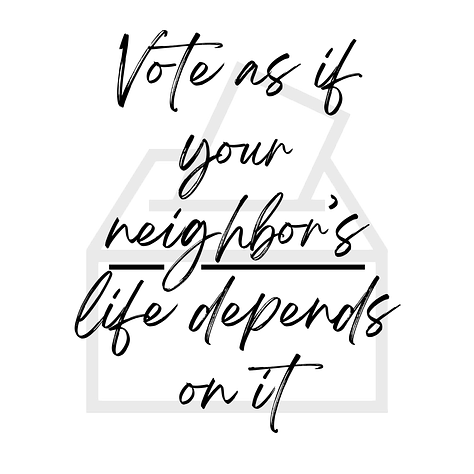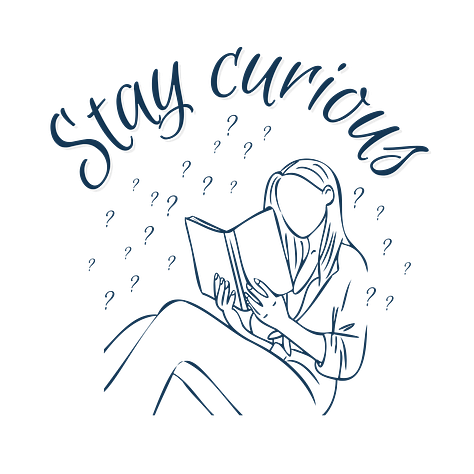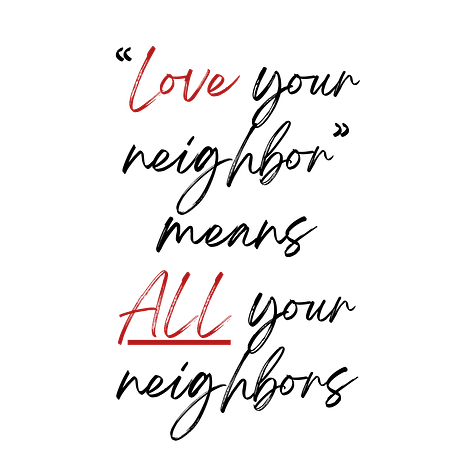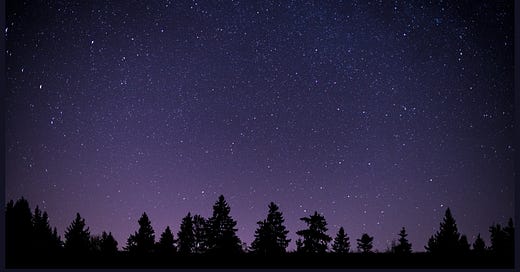We Contain Multitudes
And remembering that can help us practice empathy as we work to persuade others
Note: I wrote and scheduled this piece before November 5, 2024. At the time of scheduling, I believed that regardless of the outcome, we are going to need this reminder if we are ever going to be able to move forward as a country. Honestly, right now I’m really struggling. I’m grieving. I will process those feelings over the next weeks, months, and probably years. But I will not let my humanity be taken away from me. I hope I can inspire the same in you.
It’s become one of my life mantras: “We contain multitudes.”
It is a mantra that serves me in many areas of my life.
When I found out I got to completely redesign the dual credit composition course I am teaching this year, I brought back the argumentative narrative I first devised as a graduate teaching assistant whenI was working on my master’s degree. While the project has evolved, the goal has remained the same over the years: teach students their life experiences shape the way they view the world.
I instruct them to select a perspective they hold and write about a life experience that helped to shape their perspective. I tell them it can be simple or controversial, but their opinion has to be influenced by their experience. I always use the example of my sister’s bicycle accident when we were all kids; the role her helmet played in protecting her from further harm shaped our entire family’s perspective on bicycle helmet safety for years.
I also point out that similar events can lead to very different beliefs. After all, two women can have similar journeys of infertility or pregnancy loss and land on very different points of view regarding abortion. We are human beings. We are complicated. And before my students start writing rhetorical analysis papers and investigate how people make their arguments, I want them to understand that each person making an argument is a human being influenced by their personal experience.
As an Enneagram 1 who seeks perfection in others as well as myself, I often have to remind myself of this truth when dealing with people in a variety of contexts, and it is hard.
Most of us have messy pasts, the good, bad, and ugly of our lives mingling to create the people we have become in adulthood. Unfortunately, we walk around this world bumping into each other without awareness of the most intimate details of our neighbor’s lives. We don’t know who is going through illness, divorce, childrearing difficulties, work conflict, etc. without someone offering that information to us or us taking the time to show an interest in the lives of others.
During my fifth and sixth year of teaching, my teenage students became increasingly obsessed with whether or not I was going to have a baby. There was one particular group of girls who constantly badgered me about pregnancy and many of my other students became convinced that any time I had a bad day, I must have been pregnant.
The problem was I was trying to get pregnant, but failing every month. I desperately wanted a baby, but nothing was happening. Eventually, my husband and I visited a fertility specialist and I got pregnant with our daughter, but it was a daily struggle as we waited to find out if we were going to be parents. And frequently hearing from nosy teenagers that they thought I should be or that I was pregnant, hurt.
But there was no way for them to know, because infertility was a reality far outside of their life experience.
Our multitudes extend far beyond just our difficulties and griefs, however.
I’ve lived all over the country, and while an honest assessment shows I am a Midwestern girl at heart, each place I’ve lived shaped me into the woman I am today. I haven’t lived there in 35 years, but I carry my Detroit pride everywhere. I’ll never forget the field trips we took to Chicago during our two years in Illinois. My love for mountains and the American West is burned into my soul after five years of living in Wyoming. After 16 years of living in Indiana, I finally love the state and all of her quirks. Six years of calling ourselves Texans changed our whole family. I will always call myself a Michigander, even though I haven’t lived there in 22 years. And even my birthplace of California plays a role in my life perspective.
I love music and spent years playing piano, guitar, and singing in choir. I was a solid academic student who never stopped seeking more knowledge. I wanted to be an actress but ended up a high school theater director instead, and that seven-year gig shaped my views on extracurriculars and increased my love for all things theater. I never got to play sports in high school, but I still genuinely love sports and watching my kids play.
I am a wife, a mom, a teacher, and a writer, and all four influence each other. I am a sister and a daughter. I am an aunt and a daughter-in-law. I am a Christian who believes my role in this world is to love my neighbor.
I am an American patriot who loves my country and wants her to be and do better.
I am all of those things and so much more. And I know the same is true for nearly everyone.
There are a lot of negative results from our polarized society, but I believe one of the biggest issues with the polarization is we’ve forgotten what makes us human. I don’t think it just applies to our neighbors; it applies to us as well.
When our identity is tied up in who we vote for and who we hate and who we fear, we forget we are more than just one thing. It gives room for politicians, influencers, and bots to tell us who we are and who we should be. It builds walls that keep others out of spaces we have designated for us and only those who are like us.
Except, who is like us? No one. One of the key markers of maturity is the ability to determine our own identity outside of our friends, faith community, family, sexuality, or even ethnic or national identity. You can be a Christian who studies other religions. You can be a theater major who yells at the television during football games. You can be a hockey player who cries listening to Taylor Swift. You can be all of these things at once.
Why?
Because we contain multitudes.
It’s time we start giving ourselves permission to embrace those multitudes and see those multitudes in others.
We may discover there is so much more that unites than divides us.
Support my writing
While most of my work here is free for all subscribers, it is still a labor of love that I fit into the few hours I have when I am not teaching or being an attentive wife and mom. If you want to support my writing but do not want to commit to being a paid subscriber, please consider a one-time donation.
You can also support me by ordering my book or books from my favorite book lists at my Bookshop.org affiliate page.
Check out my RedBubble store for related merchandise.



If you want to be a regular supporter, you can upgrade your subscription from free to paid and get occasional content only for paid subscribers.
And thank you for supporting my journey 💗







This is a great piece, Sarah! Thank you for sharing!